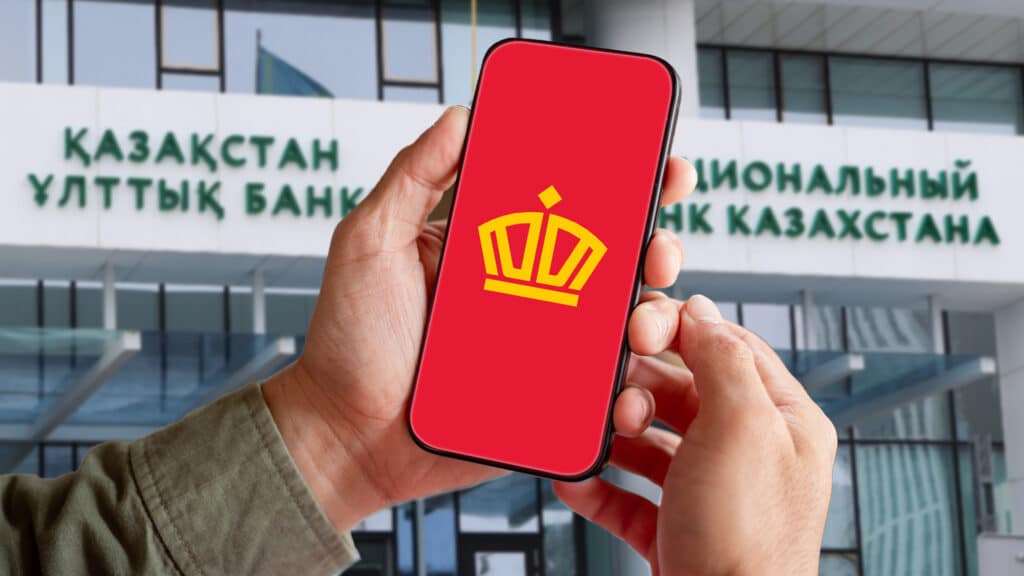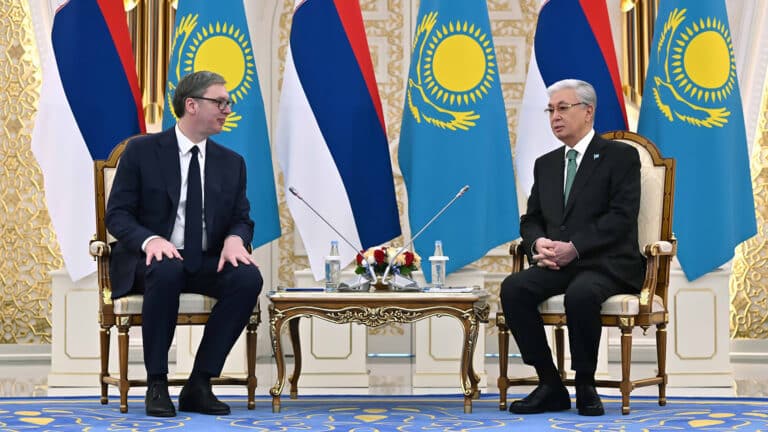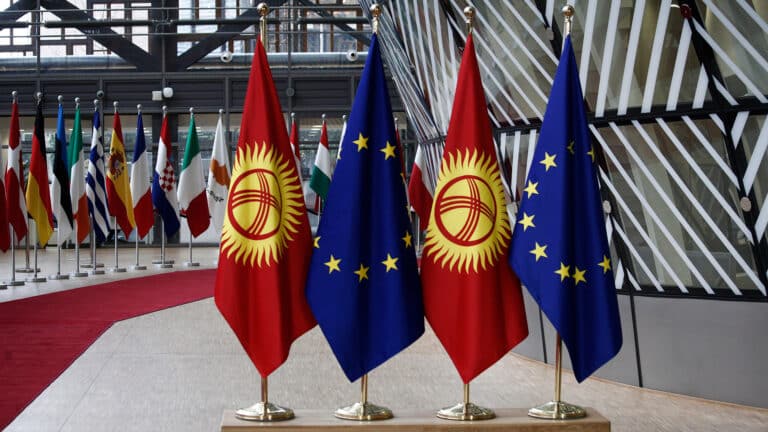
Kazakhstan’s National Bank has commented on the U.S. Department of the Treasury’s recent sanctions against the Center of Financial Technologies, the Russian developer of the Zolotaya Korona (Golden Crown) payment system. In response to Kursiv.media’s inquiry, the National Bank stated that it had not received any warnings from the U.S.
«Zolotaya Korona itself has not been included in the sanctions lists and no recommendations have been received. Second-tier banks, as private business entities, independently assess risks to their activities and decide whether to engage with foreign payment systems based on commercial interest and economic feasibility,» the National Bank said.
Currently, banks are processing non-sanctioned payments and remittances between Kazakhstan and Russia as usual.
On Aug. 23, the U.S. Treasury Department imposed sanctions against several Russian companies involved in software and communication technology development, including the Center of Financial Technologies (CFT), the developer of Zolotaya Korona. As a result, CFT’s assets under U.S. jurisdiction were frozen, its executives were banned from entering the country, the company was prohibited from receiving advanced technologies from the U.S., and U.S. individuals and entities were banned from doing business with it.
The day after CFT was sanctioned, Georgia suspended its work with the Zolotaya Korona payment system. Three days later, transfer services were resumed «after the ties with CFT were clarified.»
Earlier this week, the Russian outlet Frank Media reported that Bank CenterCredit’s (BCC) mobile app no longer supports fund transfers via Zolotaya Korona. However, BCC stated that the app is «operating normally» and is reviewing the updated sanctions list to adjust its processes and services accordingly.
On Wednesday, Aug. 28, Frank Media also reported that Freedom Bank temporarily suspended transfers through Zolotaya Korona amid the U.S. sanctions. The bank is seeking additional information from the payment system to assess the impact.
Transfers via Zolotaya Korona are also unavailable on the Jusan Bank app. While its website suggests the service can still be accessed at bank branches, it remains unclear if this option is currently available.
According to Forbes Kazakhstan, other banks are closely monitoring the situation. Kaspi Bank, Home Credit Bank and VTB Bank do not use Zolotaya Korona.
Zolotaya Korona accounted for the majority of money transfers in Kazakhstan from January to June 2024 or 87% in total, with the remaining stakes distributed among Western Union (7%), MoneyGram (2%) and other payment systems (4%).
Additionally, in early July, the U.S. Department of the Treasury’s Office of Foreign Assets Control (OFAC) added VTB Kazakhstan, the last remaining subsidiary of the sanctioned Russian bank in Kazakhstan, to its list of sanctioned entities, making any business collaboration with it subject to the risk of secondary sanctions. At that time, the Agency for Regulation and Development of the Financial Market of Kazakhstan (ARDFM) told Kursiv.media that Kazakhstan’s legislation does not include a direct ban on transactions with individuals or entities on sanctions lists. However, banking regulations do require banks to manage compliance risks.
The regulator also highlighted that banks have the discretion to decide whether to establish business relationships and conduct transactions with these entities, based on their risk assessments and in accordance with the current legislation. The National Bank provided a similar response.
Earlier this year, more than ten banks in Kyrgyzstan restricted transfers to Russia through Sberbank and T-Bank. These services have been suspended in both directions for an indefinite period.













